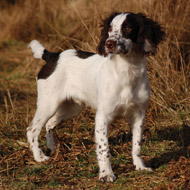
Environment secretary takes steps to prevent animal suffering in Scotland
Environment Secretary, Roseanna Cunningham, yesterday announced new measures to be introduced in Scotland, to protect animal welfare and help to prevent animal suffering.
Ms Cunningham confirmed:
- A change in the current regulations will allow a vet to shorten the tails of working spaniel and hunt point retriever puppies, where they consider dogs to be at risk of severe tail damage, later in life.
- A new bylaw to prohibit the use of wild animals in travelling circuses will be introduced in May 2017, to take effect in 2018.
- A meeting to discuss the crimes and penalties under the Animal Health and Welfare (Scotland) Act 2006.
Tough new legislation banning the use of electronic training collars- including electric pulse, sonar and spray- will also be introduced. Unless used under the supervision of a certified trainer or vet, the collars will be outlawed in a bid to promote animal wellbeing.
Ms Cunningham said: “Scotland is a nation of animal lovers and we take the welfare of our pets, animals and livestock very seriously.
“We have consulted extensively on a number of issues and we will now improve our legislation by regulating the use of electronic training collars. There is evidence that these devices can cause suffering so they will only be permitted for use as a last resort and under the guidance of an approved trainer or vet.
“Similarly, we have seen evidence that some working dogs are suffering tail injuries so I have decided to allow vets to shorten the tails of Spaniel and Hunt Point Retriever puppies where they believe it will prevent future injuries amongst working dogs.
“We will also ban the use of wild animals in travelling circuses, which is widely considered to be morally unacceptable in the present day, and undertake a full review of penalties under existing animal health and welfare legislation. I believe this package of measures will improve the protection given to the welfare of animals in Scotland over the coming months and years.”



 The RCVS has announced a new version of its 1CPD mobile app, with enhanced features for veterinary surgeons and veterinary nurses to record their continuing professional development.
The RCVS has announced a new version of its 1CPD mobile app, with enhanced features for veterinary surgeons and veterinary nurses to record their continuing professional development.